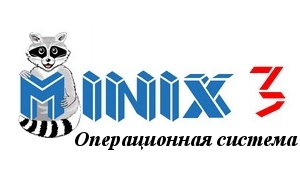 |
 Сайт
русскоязычного сообщества
разработчиков и
пользователей операционной системы MINIX
3 Сайт
русскоязычного сообщества
разработчиков и
пользователей операционной системы MINIX
3 |
|
Interview for Russian MINIX 3 community
What are the plans for development of MINIX 3 operating system, in particular when next release of OS MINIX 3 is planned? We are working on virtual memory, which is close to being finished. We are also putting in many reliability features. When these are ready we will have a release. Who guides the development of MINIX 3 operating system? Me, my programmers, and my students. It is kind of a collective operation. Why is it C chosen as the language of development? Is transition to C++ or other object-oriented languages possible? We started in C in 1987. C++ was not very widely used then. It is more legacy than ideology. If we transitioned, it would probably be to cyclone. Why was BSD license chosen for MINIX 3 operating system, not GPL? Is use of MINIX 3 code in the program licensed on GPLv2 possible? BSD gives you more freedom. You can do whatever you want with it. GPL puts pages and pages of restrictions on what you may and may not do. What way do you consider as the most prospective to develop a base of MINIX 3 devices drivers:
Drivers are a big problem. We will take them any way we can get them, new ones, ported ones, etc. Anyone who wants to write drivers is very much encouraged to do so. Is the documentation on drivers development being prepared by anybody? At present it does not suffice for effective development of drivers. I know. We don't have anyone who can write a «driver guide». You have to look at other drivers for examples. Is it possible to create real-time MINIX 3 and how reasonable is it? I think it should be possible. There are a couple of people who have made a small start. How to become a developer of MINIX 3? Just start! Might be useful to check with me to make sure nobody else is doing the same thing though. Are there any examples of using MINIX 3 in «real life»; i.e. out of educational process? If not, what prevents it? Did you see any interest to MINIX 3 from commercial companies? One of the disadvantages of the BSD license is that someone can use MINIX in a commercial product, modify it, and not tell us. They don't have to. So we don't really know who is using it. How do you consider, why operating systems with a monolithic kernel are more popular and wide-spread nowadays? It is simply legacy. Furthermore, that statement is not true. Practically all embedded systems use microkernels. Nearly all cell phones use microkernels. Most industrial systems use microkernels. Monolithic kernels are only used on systems where the reset button is considered a good solution to bad software. What is the future of micronuclear operating systems, in particular what prospects do you personally see for MINIX 3? We are trying to build a very highly reliable system. It might also be applicable to servers where a mean time to failure of many years is needed. How do you think, what operating systems are potential competitors of MINIX 3? Certainly L4 is a competitor. What is your opinion on such projects as Debian/Hurd, Debian/NetBSD, Debian/FreeBSD? May Debian/MINIX 3 appear in future? I am not impressed with Hurd. They promised the moon 10 years ago and haven't delivered much. Debian/MINIX? We haven't thought about it much. If the Debian people are interested, we'd love to talk to them. What operating system do you use for work and at home? At work, Solaris; on my notebook, Windows XP. Is new edition of your book «Operating Systems: Design and Implementation» planned? Eventually. Not for a couple of years though.
Andy Tanenbaum |
